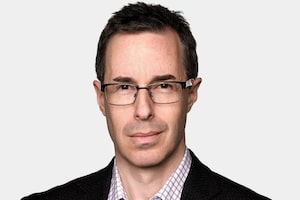Egyptian activist Ahmed Hassan in Jehane Noujaim’s documentary The SquareCourtesy of Noujaim Films
What comes after a revolution? When Jehane Noujaim took her cameras to Cairo's Tahrir Square in January, 2011, for what would become an Oscar-nominated documentary, she hoped to record a buoyant moment in history. Muslims and Christians, Islamists and secularists, raising their voices together after decades of living in fear of the regime. She was there at the beginning, when the Egyptian army met the protest songs with tanks and tear gas and bullets; and she was there one month later, at what seemed like the triumphal end, to record the jubilation when the military announced that President Hosni Mubarak had stepped down.
But that turned out to be merely prologue. Noujaim stayed to record the real story, as the old regime remained in power and the upturned faces of the youth in the square turned downcast with disappointment. Over the next two and a half years, she and her crew shot 1,600 hours of on-the-ground footage as Egypt struggled, often violently, to find a way forward. If the resulting film is unwieldy – five editors, five "additional editors," and six assistant editors are credited – it also brims with angry urgency.
Last September, The Square won the People's Choice documentary award. In November, it was snapped up as a marquee pick by Netflix, which begins streaming it Friday, one day after becoming the first film associated with the online TV service to be nominated for an Academy Award.
In Tahrir Square, Noujaim focuses on three protesters: Ahmed Hassan, a young and energetic idealist who recalls that his family was so poor, he had to earn his grade-school tuition by selling lemons in the street; Khalid Abdalla, a Scottish-born Egyptian actor (The Kite Runner), recently returned to his ancestral homeland in hopes of using his media savvy to keep the world's attention on Cairo; and Magdy Ashour, a Muslim Brotherhood member who was tortured and imprisoned under the old regime.
Noujaim also gives screen time to representatives of the state – an army general, a military spokesperson – and finds them, to a man, smug and supercilious, a sterile contrast to the protesters' authenticity.
The Square captures the uneven tone and rhythm of a country being reborn: the folksy protest songs and long patches of earnest undergrad dialogue about civil rights, punctuated by explosions of horror, followed by more songs and earnest dialogue, and then more horrific footage of street battles with the army. More than once, the screen goes black as the film's crew are assaulted.
Then, as if through a breaking tear-gas fog, Noujaim's characters begin to appear in three dimensions. Ahmed's early optimism is dimmed by the grinding reality that he and his fellow protesters may just be pawns in a battle between two Goliaths, and he charges into a riot as if with a death wish. Later, he covers a head wound with a scarf so he can visit his mother's home without her knowing he has been injured. Magdy grows ambivalent about the Muslim Brotherhood and its sometimes violent tactics, after secular friends he met in the square during the original protests are hurt.
In the end, Ahmed claims a kind of victory, noting that open dissent and public protest has become embedded in the culture, even if Egyptians have not yet found a leader to unite them all. Something has begun, he says. Its real meaning is not yet clear.
The Square opens at Toronto's Hot Docs Cinema on Friday for a one-week run; it begins streaming on Netflix on Friday.
 Simon Houpt
Simon Houpt